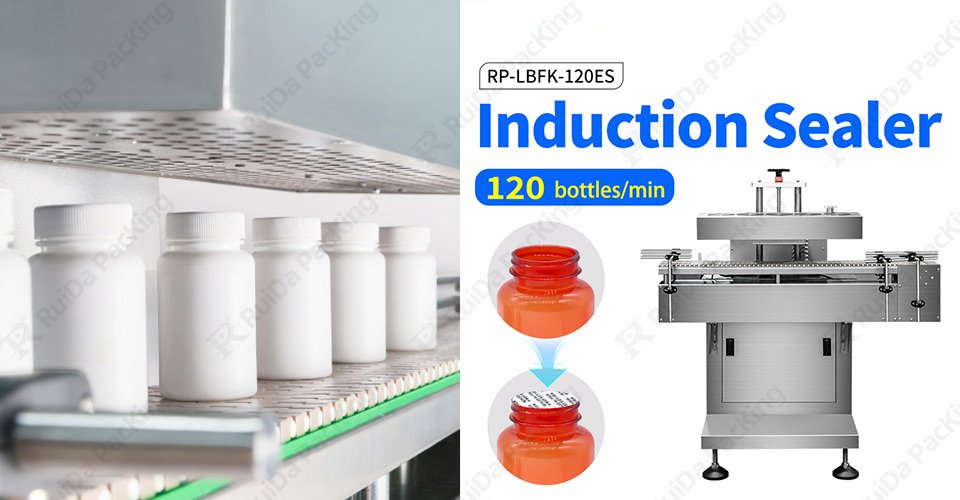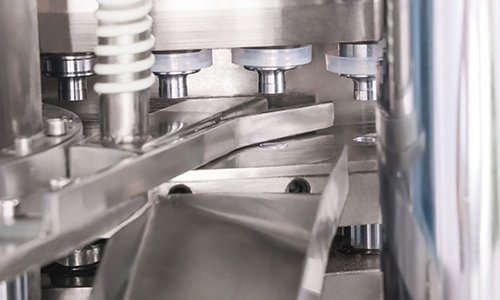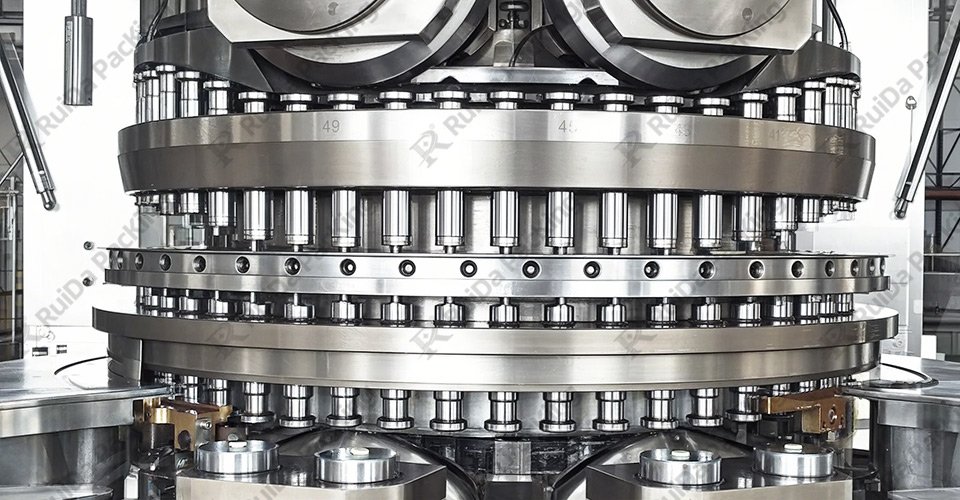
Source: Istockphoto
When buying medicines in the pharmacy, you may notice that they are packaged in varied ways. Common types of pharmaceutical packaging include bottles, sachets, and medicine blister packs. Blister packs are commonly used in pharmacies, hospitals, and even homes. But why blister packaging is the most commonly used one? why capsules and tablets can be placed in both bottles and blister packs? What distinguishes medicine blister packs from other types of pharmaceutical packaging? To find out answers to these questions, this article may be helpful.
What is Medicine Blister Packaging

Source: Pixabay
Before we take a further look at why blister packs are widely used in the pharmaceutical industry, we need to first understand what medicine blister packaging is. Medicine blister packs are also called pill cards or bubble packs, which comprise sheets of plastic, pliable lids, and plastic cavities resembling a blister. They are created by a form-fill-seal process. A piece of plastic sheet is molded into a shape to form a pocket that completely covers medications. Then, pills are sealed in compartments by lids that are made of aluminum foil or paperboard, which are easy to push through the foil to extract the medication but strong enough to protect against accidental openings or punctures.
Materials
The main materials of blister packs are polyvinyl chloride (PVC), making the pack lightweight, low-price, and transparent while providing a barrier against damage and improving shelf life. Single-dosed medication blister packs may spring to your mind when it comes to blister packs. In fact, blister packaging has various variations depending on the application. There are multi-dose blister packs, MOT (Medicine on Time) blister packets, and Alu Alu or CFF (Cold Formed Foil) blister packs. Each type has its own features and benefits to best fit the specific needs of consumers.
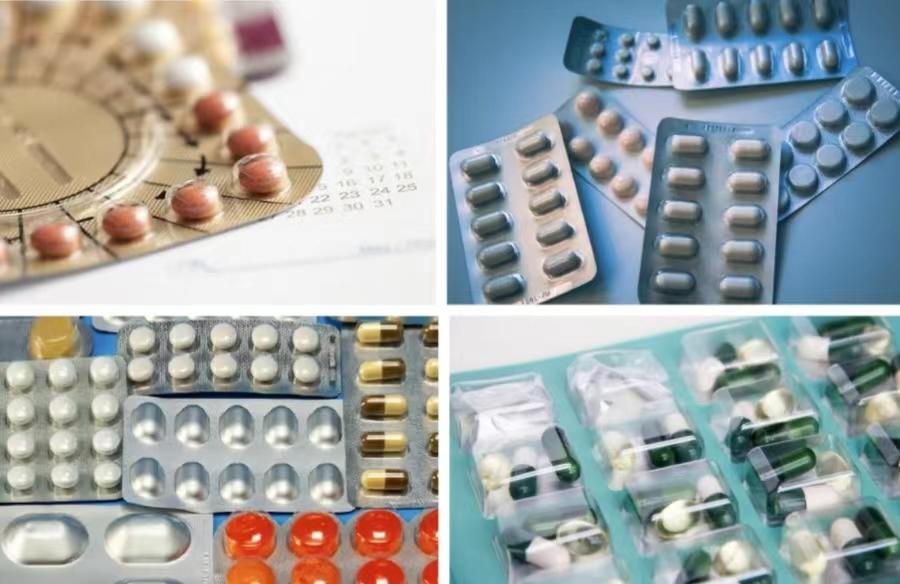
Source: Unsplash & Istockphoto
Dosage Differences
First of all, single-dose blister packs contain single doses or all the pills that a person needs to take at any time provided that the drugs are the same. It is easy to use and patient-friendly because it clearly shows whether pills were taken or missed. On the other hand, multi-dose blister packs contain multiple prescriptions, and pharmacy staff sort the doses by day and time and pack them into daily packages with clear dosage instructions. This simplifies daily medication intake and helps patients ensure a dose isn’t missed. Particularly, it is effective for those who use several pills a day at a given time.
Now that it is clear what a single-dose blister pack and a multi-dose blister pack are, it will be made clear what the differences are between the two. The most distinct difference between the two is the types of drugs the two options contain. Single-dosed blister packs contain one dose of medications, which pharmaceutical companies prefer. Whereas multi-dose blister pack, containing multiple doses of medications, are favored by pharmacies as it helps efficiently fill a patient’s pill prescription dosage and manage multiple medications.
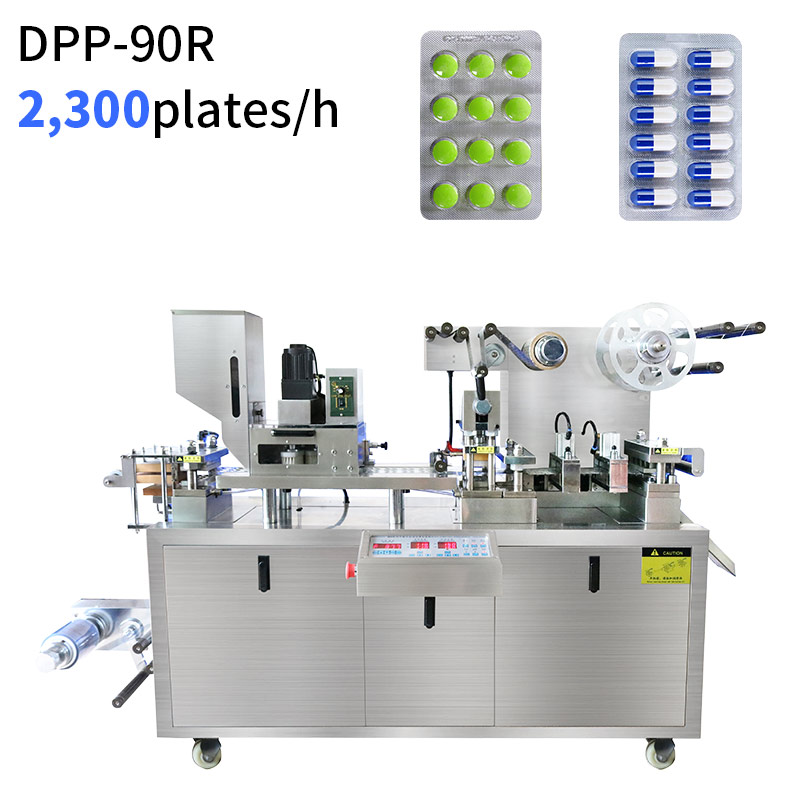
MOT Blister Pack
For MOT (Medicine on Time) blister packet, the main feature is customized medication management, and the primary advantage lies in medication adherence. MOT blister packs divide a patient’s medication into time-specific blister packs, such as a weekly or monthly cycle. Its back is clearly labeled the patient’s name, the precise time to take medicines, ensuring the patient takes the right medicines at the right time. With this easy-to-follow system, people who take multiple medicines save the trouble of trying to figure out whether they have taken pills or not, or wore, taking a double dose.
CFF Blister Pack
Alu Alu packs, or CFF (Cold Formed Foil) blister packs, are widely used to pack sensitive medicines. As they are susceptible to external influences, including moisture, light, and air, this requires a very high level of barrier protection. In the Alu Alu Blister pack, both the lid and the base material are aluminum foil, which protects the medicine from water vapor in the atmosphere, oxygen, and strong light. This means Alu Alu packs provide a 100% protection barrier.
Medication Blister Packaging Types
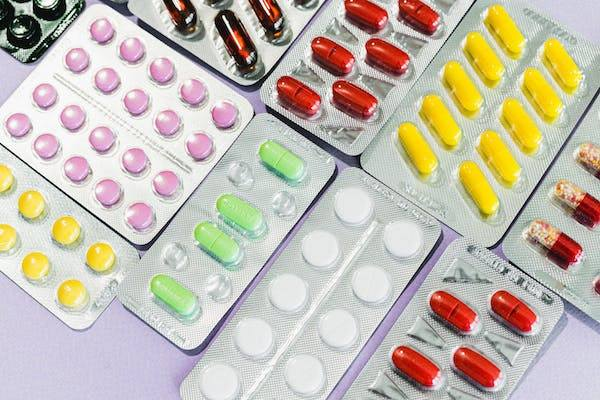
Source: Pexels
After looking through the variations of blister packs, you may wonder why Alu Alu packs are cold formed while other blister packs are heated. In fact, the two different principles of forming are the key. According to different forming processes, medication blister packs are divided into two types: cold-sealed and heat-sealed.
Thermoformed blister pack
Thermoformed blister pack is made of two materials. The cavity part is plastic and the lid is other materials such as foil, paperboard, or plastic. With the process of thermoforming, a sheet of plastic is heated to a temperature where it can be easily formed and molded into any desired shape. Its biggest advantage lies in low cost and visibility as the product can be visually examined through transparent plastic, eliminating dispensing errors.
Cold-formed blister packs
Materials used in cold-formed blister packs include PVC, aluminum, and Polyamide. The film laminate is simply pressed into a specific mold without heat, for which the material is called cold-formed blister packs. The film laminate will be stretched and maintain the formed shape. After the filling, the formed aluminum film is sealed with an aluminum foil lid. The key advantages of laminate include a complete barrier for oxygen and water, thereby extending the product’s expiry date. Besides, without using heat equipment, cold seal blister cards are the perfect option for heat-sensitive medications, or when a heat sealer is not accessible.
Benefits of Blister Packaging for Medication
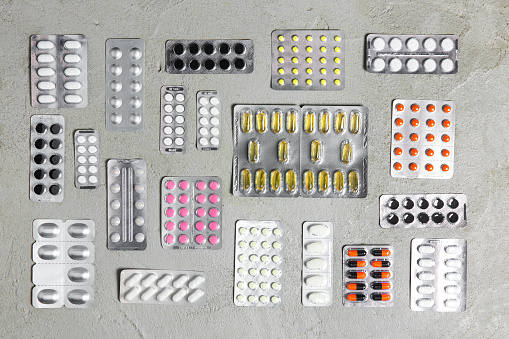
Source: Pexels
Different types of pharmaceutical packaging have their own advantages and equally contribute to drug protection.
Nevertheless, it is necessary to figure out their differences and respective benefits so that those who interact with packages, such as pharmacies and hospitals, can easily decide whether one is more suitable based on the requirements of the drug itself and its customers. Here, we will focus on blister packaging due to its various benefits and popularity.
Manage Multiple Medications
For people who have to take multiple pills for a long time or struggle with remembering whether or not they took medication, blister packaging surely is a useful tool by providing a visual dose history and dosing information.
Luckily, with blister packages printed with dosage instructions, you can save the trouble of remembering dosage instructions. For those who take multiple medications, other variations of blister packages like calendarized blister cards and multi-dosed blister packs are also alternatives. Medications are pre-packaged into the proper dosages, which are easier to use. The pack is labeled with detailed information of name, contents, and the precise time to take them, which avoids missing doses. Therefore, blister packaging simplifies the process of taking medications
Product Quality
Pharmaceutical packages provide a barrier of protection and Blister packages provide a significantly higher level of protection for products. First of all, drugs are sealed in separative pill cavities. This means that damage to any part of the packaging material will not affect the whole. Apart from preventing physical damage, blister packaging such as Alu Alu packs ensures the efficacy of the medication by maintaining chemical durability. Some medications are susceptible to the outer environment, risking reducing effectiveness or producing side effects. Individual packaging prevents environmentally sensitive medications from being exposed to heat, air, light, and moisture, ensuring zero alteration is made to the chemical composition.
Safety for both Adults and Children
One factor pharmaceutical manufacturers have to take seriously is child resistance. Poisonings and deaths occur every year and children often accidentally open containers and consume medications. Therefore, the medicine packaging should be difficult for a child to open. To solve this problem, manufacturers use PVC, PE, PP, Aclar films, and cold-formed foils, which makes the packaging harder to open for children. At the same time, adults can still open such packaging by peeling the back of the packaging, pushing the tablet or the capsule through the backing, or by both peelings and pushing through.
Once blister packs were broken by external forces, there is no way to return to their original form. Such a feature provides it with an inherent tamper-evident mechanism since it is impossible to separate the lid from to the blister card without causing visible damage. This helps deter package pilferage not only in pharmaceuticals but also in consumer goods such as electronics.
Common Blister Packed Medicine
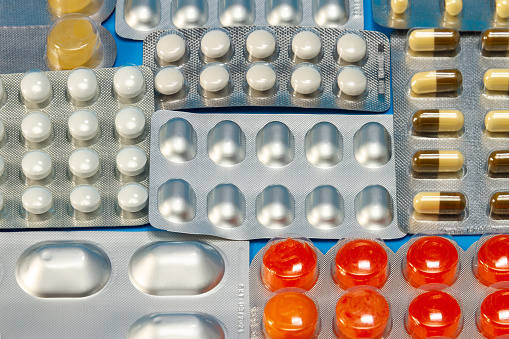
Source: Pexels
According to the benefits and features mentioned before, blister packs are suitable for two types of medications: solid medications and sensitive medicines. If medical substances such as syrups and granules are placed in blister packs, they may spread over when you open the packaging. Therefore, liquid and granular medicines don’t apply to blister packs. In contrast, tablets, pills, and capsules are perfectly matched with blister packs. They can be protected by being placed in plastic cavities strengthened by foil backing. Additionally, as some solid medications are sensitive to light, moisture, and heat, it is necessary to keep them in a sealed environment and blister packs counteract chemical interaction.
Can Medicine Blister Pack be Recycled

Source: Pexels
The answer to this question may be changed due to different factors. Therefore, such a tricky question is worth a detailed discussion.
On the one hand, the medicine blister pack is recyclable as long as its components are separate and clean. Researchers from the University of Łódź have come up with a method to effectively recover aluminum and PVC from pharmaceutical blister waste.
So why do some people argue it can’t be recycled? The answers come down to costs and recycling methods. Blister packs are made of various plastics, foils, and paperboard. In most cases, plastic cavities and thin foil backing are connected. To go into curbside recycling, the plastic and the metal need to be separated before recycling so that they can be broken down and melted into their individual material types. However, it’s difficult for processors to separate these two materials, leading to medicine blister packs not being recycled in kerbside bins.
Additionally, the whole process of recycling pharmaceutical blister waste can be time-consuming and expensive with low efficiency. Considering such practice is low-valued and high-cost, few people are willing to recycle such waste. Therefore, pharmaceutical blister packs are naturally considered non-recyclable.
Although medicine blister packs are pharmaceutical waste, which means they can’t be recycled on your own at home. With a “Little Packs, Big Impact” initiative launched by TerraCycle, consumers are able to take action in the face of empty medicine blister packs by dropping off used medicine blister packs at pharmacies that participate in this initiative.
Conclusion
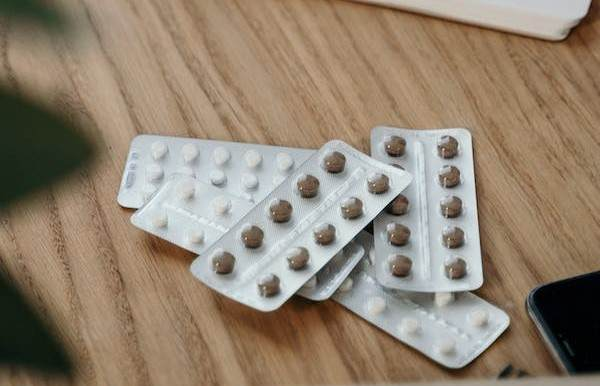
Source: Pexels
After looking at the definition, benefits, uses, types, and sustainability, we can understand why blister packing is the most preferred way chosen by all pharmaceutical companies. Next time when you need to choose a type of medicinal packaging, you can handle it well.
